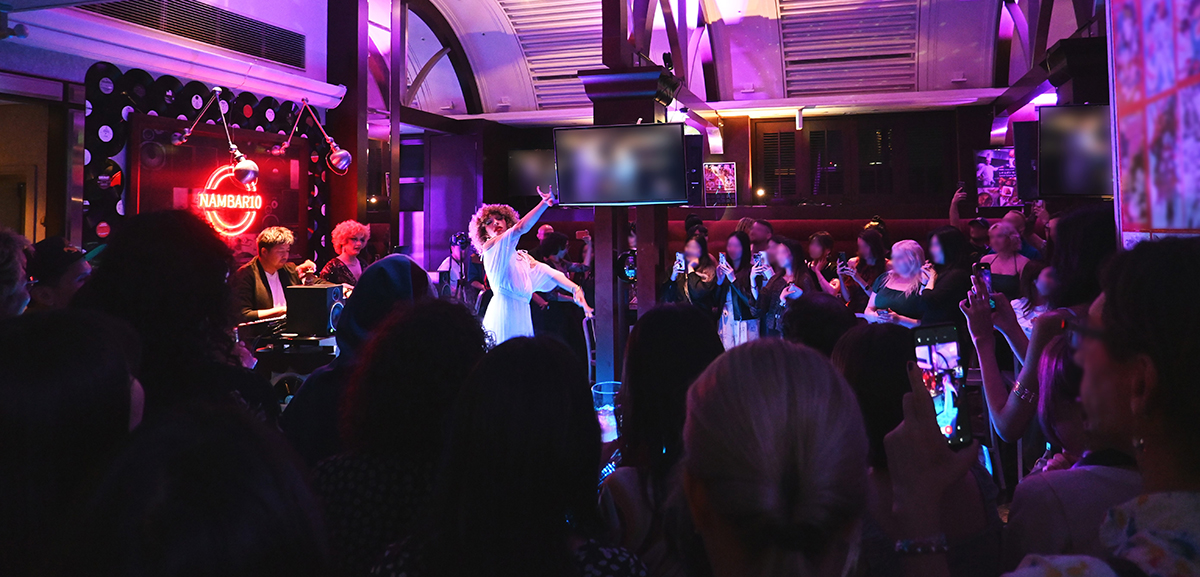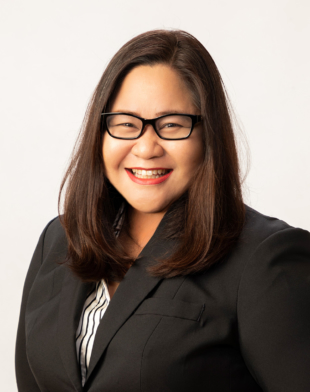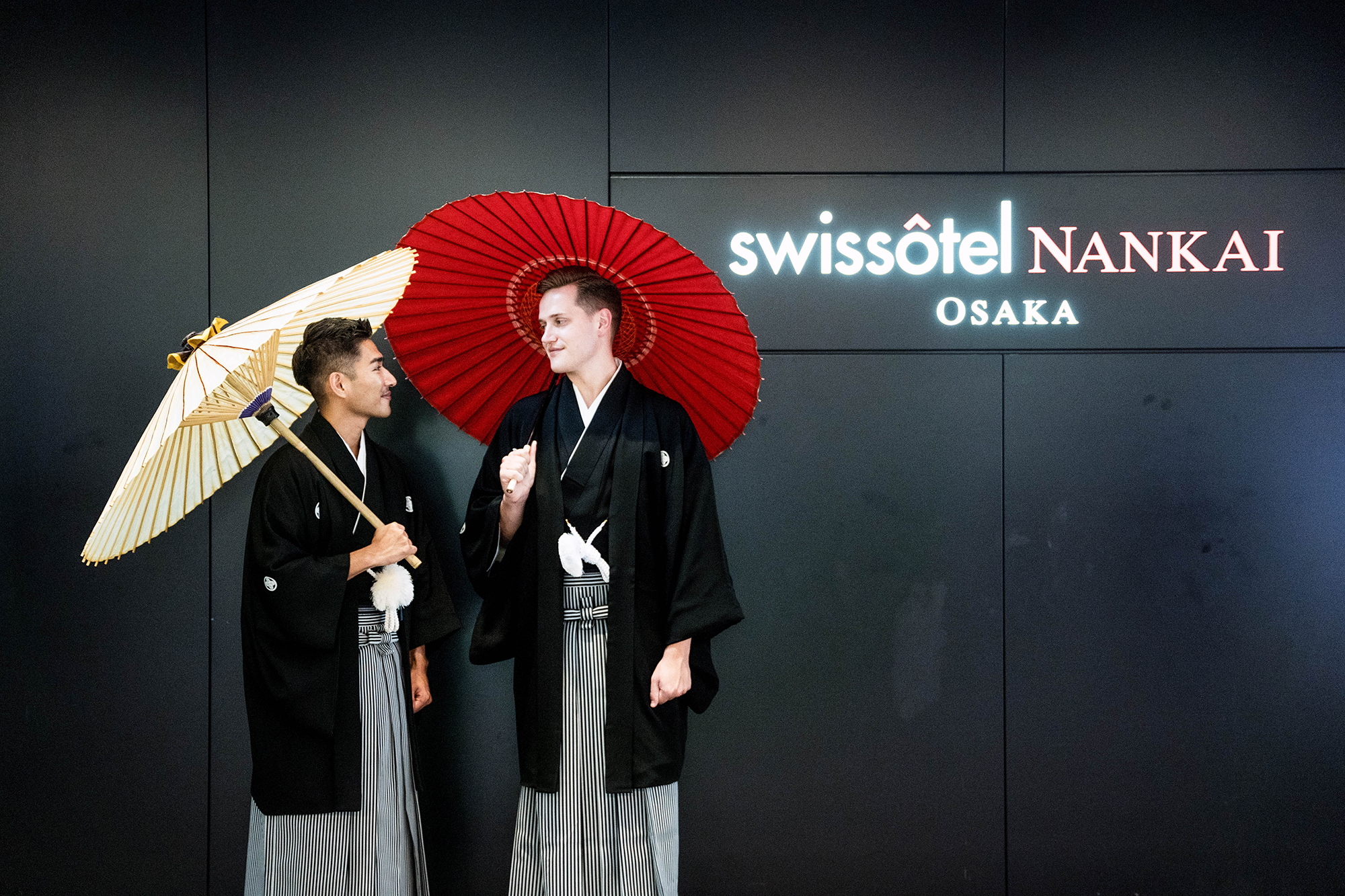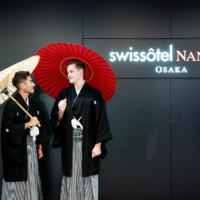The Swissotel Nankai Osaka in Osaka’s Namba district, the host hotel for the International LGBTQ+ Travel Association’s global convention scheduled for Oct. 23 to 26, is expecting to break attendance records during its first conference in Asia. The five-star hotel is known for its commitment to diversity and inclusion initiatives.
The hotel is managed by Accor, a world-leading hospitality group with more than 5,400 hotels in 110 countries. Accor is a platinum global partner of the IGLTA, which networks with tourism businesses that support the LGBTQ+ community.

There are numerous LGBTQ+ friendly bars where guests can enjoy a night out near the hotel, such as in Namba and Doyama, two of the hottest and liveliest nightlife spots in Osaka.
The IGLTA-accredited hotel is also the first hotel in Asia and the first Accor property to pass an eight-point audit that covers issues such as discrimination and harassment.
The hotel adheres to a training program that includes an onboarding process whereby all of the staff attend an LGBTQ+ seminar organized by the Osaka Convention & Tourism Bureau as well as Accor’s diversity and inclusion programs. The Swissotel Nankai Osaka is also accredited by the OCTB as an LGBTQ-friendly hotel.
“It is more of a recognition as to what we have been doing for many years. This accreditation allowed LGBTQ+ people to know about these initiatives that have already been in existence,” said Marketing Director Mariangela Silvestre.

“Every day, we interact with people from different backgrounds and cultures. Each guest has their own preferences, so it’s ingrained in our system … that we have to be open and diverse, and we are able to welcome them,” she said.
She thinks that hiring employees from diverse backgrounds helps the hotel to understand the diverse needs of its customers, and thus, provide better service.
In addition to having a dedicated section on its website in multiple languages for this community to travel with pride and peace of mind in Osaka, the hotel will be holding its first same-sex wedding between two Japanese next April. Prior to the wedding, the hotel had the couple fill out their standard LGBTQ+ questionnaire designed to ask small but crucial questions to gauge their privacy and other concerns.
Silvestre said that some couples, for example, prefer to be very private and hold weddings just for their families, so they might not want to have their names displayed on a monitor for the general public to see, as is done for many hotel weddings. “These are small but critical details that other wedding venues might miss,” she said.
Silvestre also noted that Japanese society remains conservative and that a hotel’s active support for the LGBTQ+ community may give other guests pause. The reason behind it, she said, is probably because people “don’t know how to react to it because it’s the first time they are encountering (such a situation).” Although it’s quite a risk for the hotel’s reputation, the hotel felt “it’s either we do it, or no one else would.”
“We wanted to give members of the community a place in Japan where they can feel at ease, and where they won’t be looked at or treated differently when they step inside our doors,” she said.
Silvestre also sees it as a good opportunity to collaborate with surrounding businesses, such as the Takashimaya department store, so that LGBTQ+ visitors can visit Osaka with peace of mind and feel welcome.
Swissotel Nankai Osaka hosted the same OCTB training program for nearby businesses, including Takashimaya, prior to the IGLTA convention.
“I can be proud to say that we have a team that is very much open. It’s not a one-time effort implemented only during LGBTQ+ Pride Month. For us, it’s sustaining,” she said.
This page is sponsored by Swissotel Nankai Osaka.






